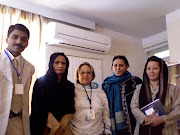"Nature cried in the wrath of waves. Flowers, withered, fell to the fathomless sea. The injured seagull wailing to the sky... Sleep well, my friends! We cherish for you a memory. We build for your progeny a life," wrote a Chinese leader in the wake of Tsunami. The tsunami disaster is fast emerging as a political hunting ground for many nations. India was among several countries that were taken by surprise by the tsunami, which is otherwise rare in the Indian Ocean. Though one of its serious victims, India displayed maturity in its management of the ravages caused by tsunami by helping other countries in the region leading to a changed perception of the country in the eyes of the international community.
The decision taken by the government, within hours of the tsunami, was to gear itself up for its largest relief operation, not just for its own devastated coasts, but in Sri Lanka, Indonesia and Maldives. Ten warships, patrol boats and hospital ships, backed by helicopters and transport aircraft, and loaded with equipment, medicine, food and shelter, headed for these three neighbors hit by the disaster.
The next important decision taken by the Indian government was to decline foreign aid for its relief operations. On acceptance of foreign aid, Defence Minister Mukherjee said that the Prime Minister had made it clear that "India does not need such assistance at this juncture and it will not take money from foreign governments." He, however, sought to distinguish assistance from the World Bank and International Monetary Fund saying the "two were different entities and India was one of their founding members." External Affairs Minister Natwar Singh said, "we deeply appreciate the offers of help (to India)?so far we have managed on our own. Our experience of handling natural disasters has enabled us to develop well-defined institutional mechanisms for disaster management at all levels. It would therefore, be appropriate that international relief is directed where it is most urgently required."
According to Graham Allison,?? India had operated the 'theory of rational choice'? to avoid any foreign aid choosing from among the available alternatives, the course of action whose expected consequence best promotes the actor's goal or preferences. Therefore, this is crisis diplomacy rather than crisis management. The strategic imperative aspects that India observed were as follows:
-
Determined not to stand around as a hapless victim, India swiftly became part of the core group of four countries alongside the US, Japan and Australia to provide aid. Although the core group stands disbanded now that the United Nations is coordinating the crisis management, India registered its presence in the tsunami-affected region as a "compassionate power capable of helping its neighbors even when its own shores are troubled."
-
India offered aid to Sri Lanka as early as the evening of 26 December? even as it was coping with the crisis in its own territory. Analysts believe that it was a conscious decision to build goodwill with neighbors like Sri Lanka with whom New Delhi has? had strained ties at times. The need to jump in before its local rival (Pakistan) got into the act seems to have sharpened that desire. At the same time the US had decided to send 1500 marines and an assault ship. India's move signaled the fact that New Delhi is fully capable of "maintaining its arc of influence in the subcontinent."
-
In the case of Indonesia, two Indian naval ships ? INS Nirupak, INS Khukri ? were sent for medical aid and emergency relief work at Meulaboh (in Aceh province). The INS Nirupak is a 45-bed hospital ship equipped with an operation theater and three intensive care units, staffed by four surgeons, an anesthetist, several physicians and paramedical teams. The INS Khukri has so far distributed more than 35 tons of relief supplies to the victims of the tsunami in the Meulaboh area. This relief gesture would foster the extended neighborhood policy of India and strengthen its ties with ASEAN.
-
At a time when the United Nations is debating the expansion of the Security Council in which India hopes for a permanent seat, the signal New Delhi has sent to the international community through its tsunami relief operations is persuasive.
-
Finally, by rejecting foreign assistance, the Indian government has willingly invited greater scrutiny of its relief efforts. One can, therefore, expect a "better-than-usual response from the bureaucracy." Already, the Indian air force has mounted one of its biggest peacetime operations.












No comments:
Post a Comment